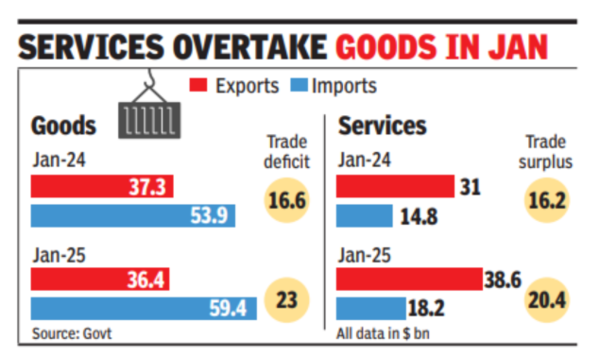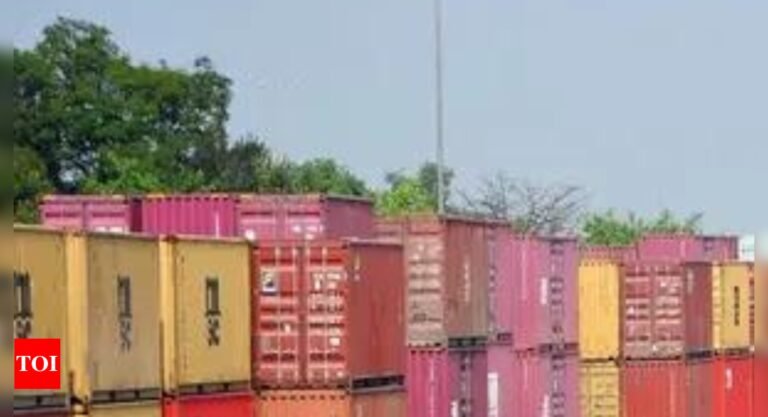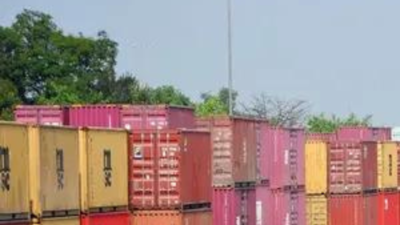NEW DELHI: India’s goods exports fell for the third straight month due to lower oil prices, pushing up the trade deficit in Jan as imports grew at the fastest pace since April.
Latest data released by the commerce department on Monday estimated that exports fell 2.4% in Jan to $36.4 billion, although non-oil exports shot up 14.5% to $32.9 billion. In contrast, exports of petrol and diesel crashed 58% to $3.5 billion – making electronics (79% jump to $4.1 billion) the second largest item in India’s export basket after engineering. During Jan, imports were up 10.2% to $59.4 billion, resulting in a trade deficit of $23 billion compared with $16.6 billion in Jan 2024.

The provisional estimates of services exports indicated that it has once again topped goods. Services exports are estimated to have gone up by over 24% to $38.8 billion in Jan, while imports were pegged at $18.2 billion.
With export of goods and services cumulatively adding up to $683 billion, commerce secretary Sunil Barthwal said India was on course to topping exports of $800 billion this year.
Asked about the impact of tariff actions by the US on several countries, including China, Canada and Mexico, Barthwal said Indian exporters could gain, and added that the govt was planning to soon hold stakeholder consultations.
“Despite conflicts and tariff retaliation around the world, we are doing well,” he told reporters, while drawing comfort from non-oil exports.
The secretary said India’s strongholds, such as engineering, electronics, pharma and readymade garments, had been growing consistently over last year’s high base. “The major drivers of non-oil import growth are electronics, drugs and pharma (21.5%) and rice (44.6%). We are seeing some green shoots in gems and jewellery,” said Barthwal.
In Jan, gold imports soared 40% to $2.7 billion, although it was significantly lower than Dec 2024, when it was estimated at $4.7 billion.
Fieo president Ashwani Kumar called for strategic measures to bolster exports and rationalise imports. In a statement, he demanded a focused approach to export diversification, targeting new markets and products, and for the continuation of trade facilitation measures and export incentives.
“A careful review of import policies is also essential to identify areas where domestic production can be encouraged to reduce dependency on imports,” he said.



